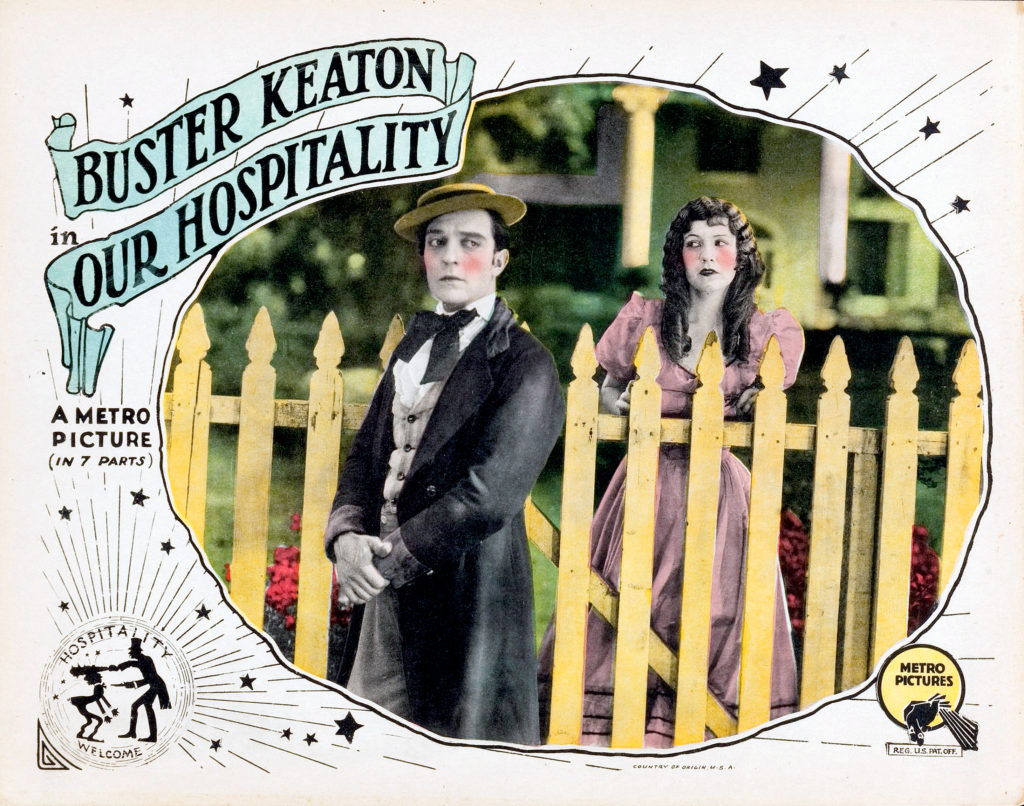Keaton’s Our Hospitality is one of my favorites of his feature films, and for the same reason One Week is one of my top picks for the shorts. It’s not just about the smartness of the gags or the overall structure or the physical stunts for me. It’s Keaton’s progression as a silent comedy film maker.
Keaton came late to the game in feature-length — Chaplin had released The Kid in February 1921, proving slapstick comedy could exist in the 5- and 6-reel world of cinema. Lloyd followed with Grandma’s Boy in November 1922, although his short comedies had been inching toward feature-length for a year or so. Goldwyn had been releasing features with Mabel Normand and with Will Rogers in the late ‘teens, and Paramount had Buster’s pal Roscoe had been grinding them out for their theaters.
What’s always impressed me about One Week is, well…The High Sign. Not only are both shorts stylistically a departure and in some ways an advance over the Comique two-reelers he’d been making in support of Arbuckle, but the sequence of the two is even more striking. The High Sign is an excellent short. It’s amazing to me that 24-year-old Buster Keaton made it, then had the notion to make One Week, and shelved High Sign, thinking One Week was a better idea.
Keaton’s Three Ages (released September 1923) hedges its bets on feature films, leaning on satirizing the structure of Intolerance (1916) — was anyone else spoofing this Griffith behemoth five years after its release? — so that if it failed as a feature it could be pulled apart and released as three shorts.

Our Hospitality (released November 1923) is an even bigger leap from Three Ages, cinematically and in production scale, than One Week is from The High Sign. It’s more like the jump from The Garage (released January 1920) to One Week or even The High Sign is. I can’t help wondering what it was that fed 27-year-old Buster’s questioning moving into 5-, 6- or 7-reel storytelling — Giving up “impossible gags”? Spending his entire childhood and youth as part of a 12-minute vaudeville act? — because Our Hospitality is as filmically mature as most of his other features in terms of story, structure, and physical gags.
The new digital restoration of Our Hospitality screens Sunday, September 29, 2019 at 12 noon at the Alamo Drafthouse NYC in Brooklyn, with yours truly at the theatre organ. For tickets and info, click or tap here.
The film will be released on Blu-ray and DVD by Kino Lorber on October 15th, pre-orderable here, which has an excellent score by Robert Israel (although if you want me to bring my theatre organ to your house and play for it, I suppose that could be arranged).